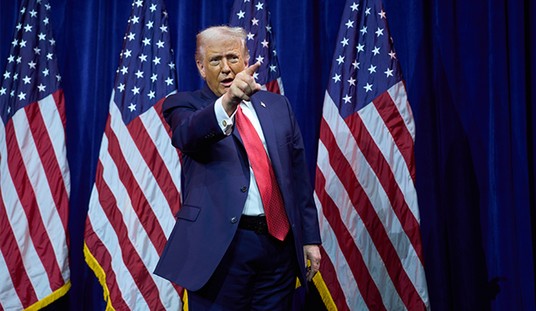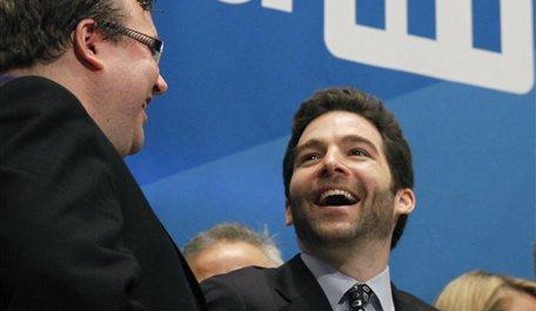It’s for your own good. Your government wishes you to be healthy.
Get in shape or pay a price.
That’s a message more Americans could hear if health-care reform provisions passed by the Senate finance and health committees become law.
By more than doubling the maximum penalties that companies can apply to employees who flunk medical evaluations, the legislation could put workers under intense financial pressure to lose weight, stop smoking or even lower their cholesterol…
Critics say employers could use the rewards and penalties to drive some workers out of their health plans…
Under current regulation, incentives based on health factors can be no larger than 20 percent of the premium paid by employer and employee combined. The legislation passed by the health and finance committees would increase the limit to 30 percent, and it would give government officials the power to raise it to 50 percent.
A single employee whose annual premiums cost him and his employer the national average of $4,824 could have as much as $2,412 on the line. At least under the health panel’s bill, the stakes could be higher for people with family coverage. Families with premiums of $13,375 — the combined average for employer-sponsored coverage, according to a recent survey — could have $6,688 at risk.
But won’t this save money by reducing overall health-care costs? Hmmm:
Jack W. Walker, the top executive at the health plan, predicted that over the long run, the federal government will pay for [its] success. State workers who live longer will spend more time collecting benefits from Medicare, the federal insurance program for older Americans, he said.
Laying aside the eternal libertarian question of how nannyish a nanny state should be in forcing the public to take care of itself, does anyone seriously think an aggressive incentives regime would last long? As WaPo says elsewhere in the article, the ObamaCare debate is fundamentally about whether health insurance should be like insurance, i.e. where your own individual risk factors determine what you pay, or like welfare, i.e. you’re covered no matter what because that’s the humanitarian thing to do. The left views it as welfare — that was the point of Olbermann’s idiotic “fight against death” soliloquy, for example, and of Alan “Teacups” Grayson’s screeching on the House floor about Republicans wanting people to die — so if incentives did end up driving up premiums to the point where the obese couldn’t pay, Democrats would simply end up lowering the ceiling on how much incentives can affect premiums.
This goes to the point John Dickerson made yesterday at Slate about why the Baucus bill or the two House bills or whatever ends up passing will inevitably cost much, much more than CBO predicts: It’s not just bureaucratic waste or government mismanagement that bleeds cash, it’s fear of alienating key constituencies by making cuts that affect them — even when those cuts are absolutely necessary. If The One’s so afraid of seniors that he’s pushing a $250 payout to them this year, how afraid will he be of hundreds of thousands of middle-class Americans who can’t manage to lose weight or quit smoking and end up struggling under soaring premiums as their employers hit them with a bunch of new wellness incentives? Or have I misunderstood what the left is really aiming for by expanding the incentives regime — namely, forcing people out of private plans and onto the rolls of a public option, where the incentives will inevitably be more forgiving (in the name of humanitarian welfare)? If that’s the case, then this isn’t a “loophole” or a bug. It’s a feature.
Update: Ah, this was sloppy reading on my part. As a commenter points out, the incentives legislation would ultimately leave it to private insurers to decide how much of the premiums should be affected by incentives. If the private marketplace remains robust, then competitive pressures should keep them from making the incentives too exacting. But the larger point stands: If this did end up in unhealthy people having to pay more, the feds would inevitably step in and either lower the ceiling on incentives or — gulp — use that as a pretext to launch a public option which could undersell private firms. See James Capretta’s piece on the Baucus death spiral for more.








Join the conversation as a VIP Member